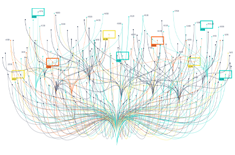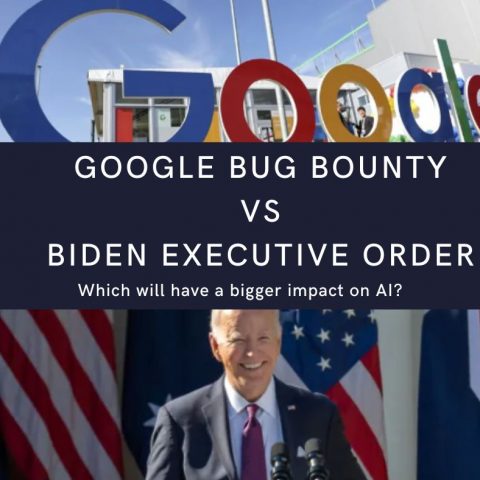What will have a more significant impact? Google’s Bug Bounties or President Biden’s Executive Order
The world of artificial intelligence (AI) and machine learning is undergoing a profound transformation, and two recent developments are indicative of a significant shift in our industry. So, what do you think will have a more substantial impact shortly?
or
President Biden’s Executive Order on AI!
The Power of Bug Bounties
First, let’s discuss Google’s latest program, which rewards people like you and me for finding vulnerabilities in AI systems. This is a significant step toward making AI systems more secure, similar to how we have improved the security of online software over the years. It’s exciting to see more companies embracing this approach, like Microsoft, which rewards bug hunters with up to $15,000 for finding vulnerabilities in their AI-powered Bing experience. These initiatives ensure AI teams receive valuable feedback loops that drive improvement.
This move aligns with our values at SmartOne, where we emphasize Ai for good, responsible AI development. As a data labelling services company, we recognize our role in providing high-quality training data to AI teams. More importantly, we’re committed to building enduring partnerships, understanding that AI is a journey of continuous improvement.
The Biden Administration’s Vision
Next, let’s discuss President Biden’s Executive AI and machine learning Order. The order calls on Congress to pass data privacy legislation while encouraging the development of privacy-preserving AI techniques.
The order also emphasizes the protection of privacy, equity, and civil rights in AI applications. It addresses algorithmic discrimination, ensuring that AI systems and ai technology do not deepen biases or discrimination in crucial areas like justice and healthcare. As someone deeply invested in ethical AI, I find this focus on equity, fairness, and ai for good resonates with me.
The order also includes an exciting addition: collaboration with other nations to ensure AI’s safe and responsible use of AI through an artificial intelligence meeting of the minds for a productive and good global summit. International partnerships and standards are crucial for shaping AI’s future. Discover more about the global Ai for good initiatives here.
AI for Good
AI has the potential to transform industries, from healthcare to education. President Biden’s order highlights the need for ai for good and the responsible use of AI in healthcare, ensuring the development of safe and affordable machine learning solutions. It also supports AI’s role in education, making personalized tutoring and learning a reality.
While the order mandates sharing safety test results and emphasizes privacy protection, it’s essential to consider the implications for Artificial Intelligence companies. The extent of reporting and administrative burdens, particularly for smaller AI startups, is a topic that warrants careful discussion. Achieving the right balance between government oversight, AI for good and overall social good, and the freedom to innovate is crucial.
AI, especially neural networks, operates in a realm where outcomes are not always predictable. Like the human brain, neural networks function as black boxes, producing different results from the same inputs. This complexity makes AI different from traditional software, and legislators and AI companies must engage in mutual dialogue.
We’re not making excuses; instead, we’re emphasizing the need for a comprehensive understanding of ai for good. AI’s inherent intricacies require us to work together to demystify the technology. It’s not about pitting government regulations against AI innovation; it’s about collaborating to set the proper standards that foster responsible ai governance and development.
Strangling open-source AI isn’t a minor process hurdle—it’s an intellectual lockdown. This isn’t just about code or even generative ai; it’s about keeping the keys to our digital future from being duplicated and locked in the hands of a privileged few.
We look forward to continued dialogue with the Administration to address these pressing issues. Our aim is an Ai for good ecosystem that is open, competitive, and secure, harnessing collective expertise for the greater good.
SmartOne: Leading Ethical AI Practices
At SmartOne, we’ve always been pioneers in ai for good and ethical AI. We’re committed to hiring responsibly and working closely with AI teams to refine their models. Our reinforcement learning from human feedback (RLHF) services ensure bias-free, robust AI models, leading to a more inclusive ai for good ethical AI ecosystem.
So, I’ll leave you with a thought: What role will you play in the future of artificial intelligence? How will you contribute to responsible, ethical technology’s formal development of this pioneering technology? Let’s keep the conversation going. Let’s work together to make Ai for good a true force to be reckoned with!










